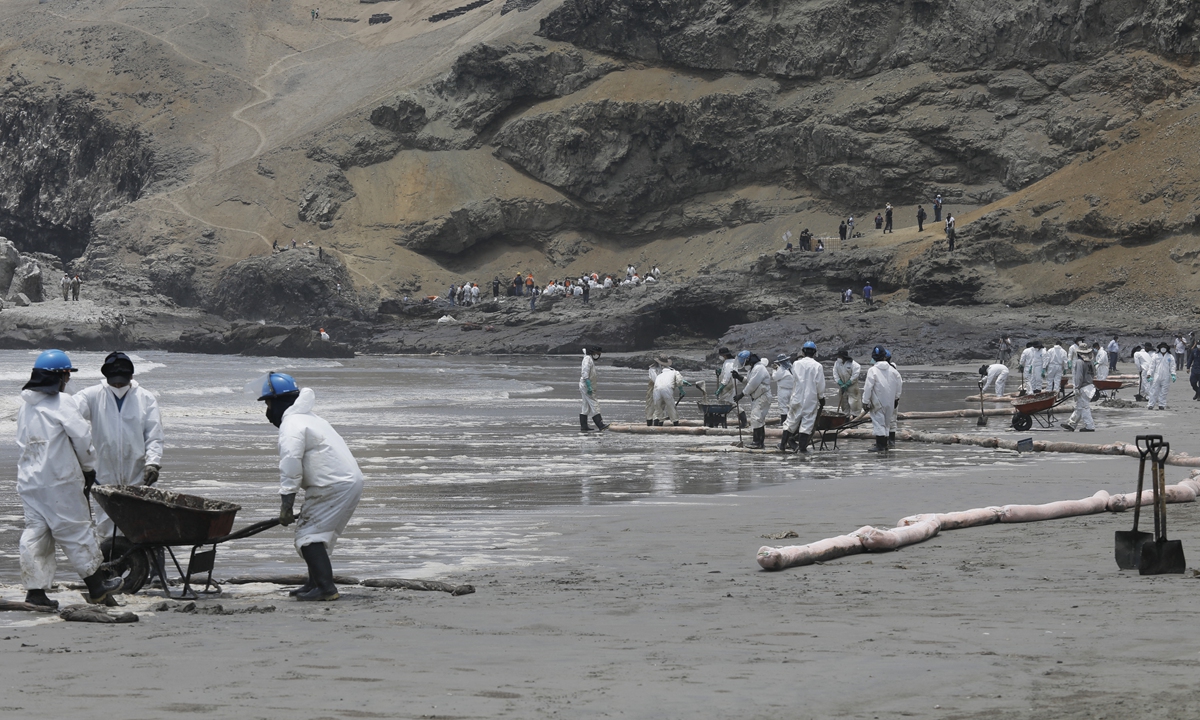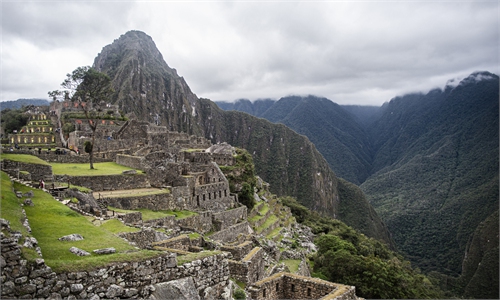ARTS / CULTURE & LEISURE
Oil crews replace bathers on Peru beaches

Cleaning teams work to remove oil along the shore after an oil spill in the Ventanilla Sea in the province of Callao stained the beaches of the district area in Lima, Peru on January 20, 2022.Photo: AFP
At Miramar Beach in Peru's popular resort of Ancon, there are no bathers despite the summer heat. Instead, it teems with workers in coveralls cleaning up an oil spill.
Almost a million liters (264,000 gallons) of crude spilled into the sea on last weekend when a tanker was hit by waves while offloading at La Pampilla refinery in Ventanilla, 30 kilometers north of Lima.
Its owner, Spanish oil company Repsol, attributed the accident to the swell caused by the volcanic eruption in Tonga, thousands of miles away.
"Oil reaches the beach during high tide at night... and deposits the oil on the shore," Martin Martinez of the NGO AMAAC Peru, supervising the cleanup, told AFP.
"We take advantage to remove it from the sea, that and the saturated sand," he said.
The spill has dealt a blow to tourism in the popular resort, and to businesses that make most of their money in the summer season.
"There were many people until Sunday; the stain arrived on Monday, and since then, no one is swimming anymore," said 48-year-old Richard Gutierrez, who has a food and soda stand on Miramar beach.
"We cannot sell anything, there are no vacationers, there is no one" apart from about 100 cleanup workers - soldiers, Repsol hired hands and volunteers - removing the polluted sand with spades to be taken to a toxic waste treatment facility.
Peru's government has declared the spill of some 6,000 barrels of oil an "ecological disaster" and has demanded compensation from Repsol.
The company denies responsibility, saying maritime authorities had issued no warning of freak waves after the Tonga eruption.
The task, which began Tuesday, is an arduous one.
The workers deposit the polluted sand onto blue tarps, which are dragged to a pile further inland, awaiting removal to another site.

